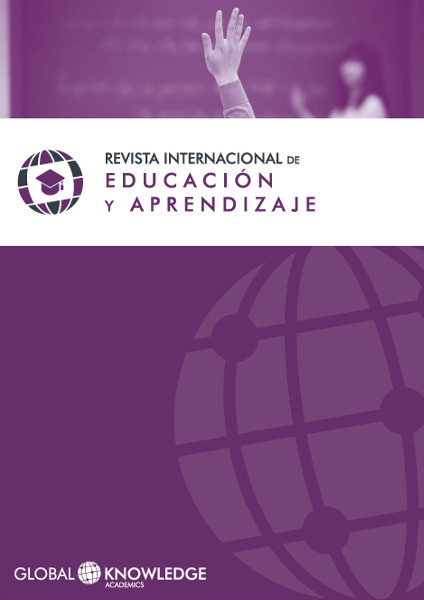La educación multicultural como escenario inclusivo para la convivencia y la atención a la diversidad
DOI:
https://doi.org/10.37467/gka-revedu.v5.1370Palabras clave:
multiculturalismo, educación en valores, educación inclusiva, atención a la diversidad, planificación docenteResumen
El contexto social marcado por el multiculturalismo obliga a replantear a fondo el proceso de enseñanza-aprendizaje en la educación presencial de las aulas. Una mayor interacción entre alumnado y profesorado brinda un cauce adecuado para diagnosticar las dificultades, así como para detectar las nuevas oportunidades del momento cultural actual. El argumento de la película La clase (2008) de Laurent Cantet, contiene una exposición sugerente de estas cuestiones y posibilita la realización de un videoforum. Desde esa actividad didáctica en el aula se puede profundizar mejor en las implicaciones pedagógicas y filosóficas de una adecuada formación cívica, que robustezca el sustrato moral de la convivencia social.
Descargas
Estadísticas globales ℹ️
|
582
Visualizaciones
|
237
Descargas
|
|
819
Total
|
|
Citas
Aristóteles (1999). Ética a Nicómaco. Madrid, Centro de Estudios Constitucionales.
Ayllón, J. R. (1998). Desfile de modelos. Análisis de la conducta ética. Madrid, Rialp.
AA. VV. (2007). Ética sin religión. Pamplona, Eunsa.
Cardona, C. (1990). Ética del quehacer educativo. Madrid, Rialp.
Del Espino-Díaz, L. (2016). La enseñanza de la Religión y el aprendizaje de valores sociales, de autorregulación y logro. Charleston, SC, Createspace Independent Publishing Platform.
García-Cano, F. (2008). Razón pública y razón práctica. Una convergencia necesaria. Valencia, Edicep.
Gil Cantero, F.-Reyero García, D. (2015). Educar en la Universidad hoy. Propuestas para la renovación de la vida universitaria. Madrid, Encuentro.
González de Cardedal, O. (2004). Educación y educadores. El primer problema moral de Europa. Madrid, PPC.
Kant, I. (1994). Fundamentación de la metafísica de las costumbres. Madrid, Espasa Calpe.
Llano, A. (2015). Humanismo cívico. Madrid, Cristiandad.
Ley Orgánica de Educación (LOE), (2004). Sevilla, Ecoem.
Moratalla, A. D. (2006). Ciudadanía, religión y educación moral. El valor de la libertad religiosa en el espacio público educativo, Madrid, PPC.
Moratalla, A. D. (2011). Ciudadanía activa y religión. Fuentes pre-políticas de la ética democrática. Madrid, Encuentro.
Naval, C.-Laspalas, J. (2000). La educación cívica hoy. Una aproximación interdisciplinar. Pamplona, Eunsa.
Pérez Soba, J. J. “La experiencia moral” en Melina, L., Noriega, J., Pérez
Soba, J. J. (2006). Una luz para el obrar. Madrid, Palabra.
Prades, J-Oriol, M. (2009). Los retos del multiculturalismo. Madrid, Encuentro.
Spaemann, R. (2003). Límites. Acerca de la dimensión ética del actuar. Madrid, Eiunsa.
Torney, J., Schwille, J., Amadeo, J. A. (1999). Civic Education across Countries: 24 National Cases Studies from the IEA Civic Education Project. Amsterdam, Eburon Publishers.
Descargas
Publicado
Cómo citar
Número
Sección
Licencia
Los autores/as que publiquen en esta revista aceptan las siguientes condiciones:
- Los autores/as conservan los derechos de autor.
- Los autores/as ceden a la revista el derecho de la primera publicación. La revista también posee los derechos de edición.
- Todos los contenidos publicados se regulan mediante una Licencia Atribución/Reconocimiento-SinDerivados 4.0 Internacional. Acceda a la versión informativa y texto legal de la licencia. En virtud de ello, se permite a terceros utilizar lo publicado siempre que mencionen la autoría del trabajo y a la primera publicación en esta revista. Si transforma el material, no podrá distribuir el trabajo modificado.
- Los autores/as pueden realizar otros acuerdos contractuales independientes y adicionales para la distribución no exclusiva de la versión del artículo publicado en esta revista (p. ej., incluirlo en un repositorio institucional o publicarlo en un libro) siempre que indiquen claramente que el trabajo se publicó por primera vez en esta revista.
- Se permite y recomienda a los autores/as a publicar su trabajo en Internet (por ejemplo en páginas institucionales o personales), una vez publicado en la revista y citando a la misma ya que puede conducir a intercambios productivos y a una mayor y más rápida difusión del trabajo publicado (vea The Effect of Open Access).













